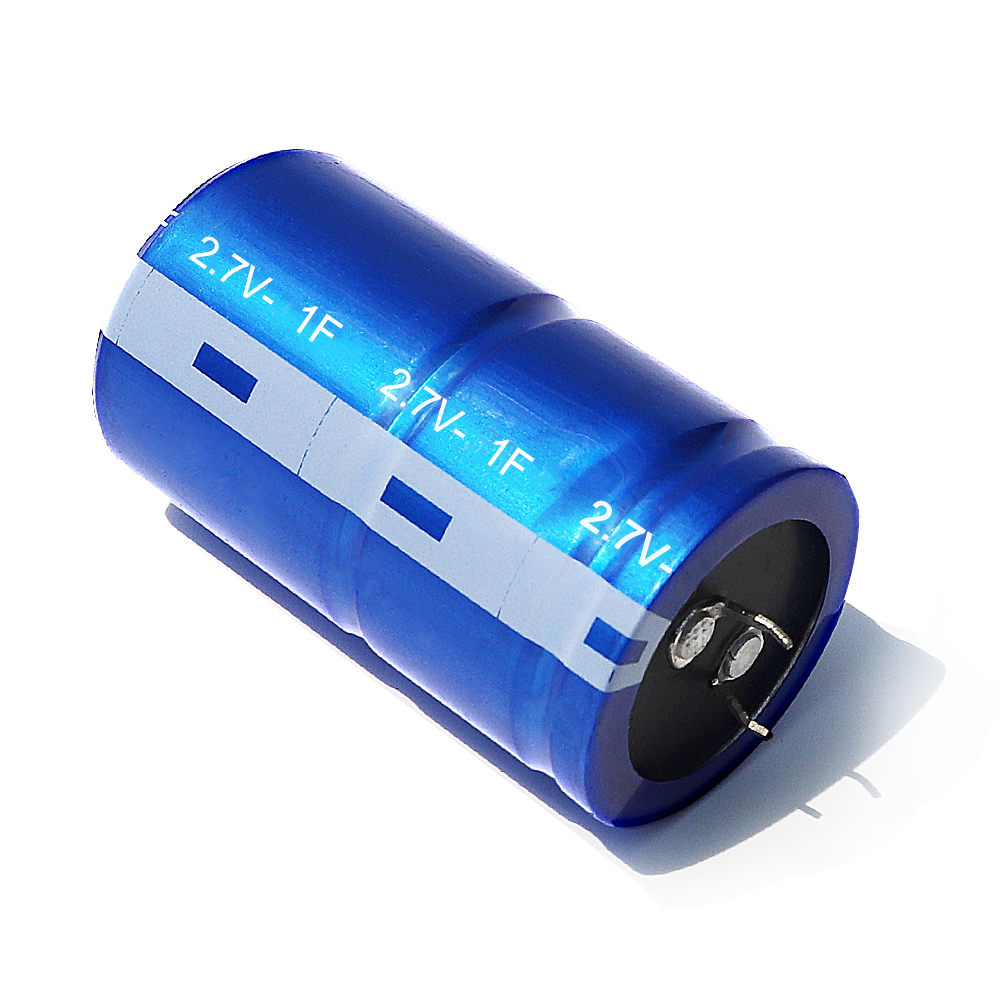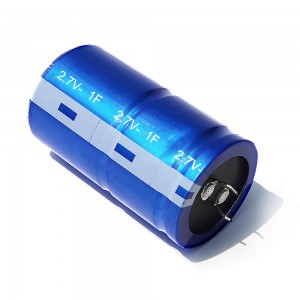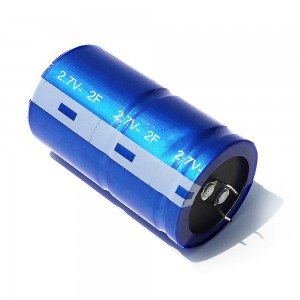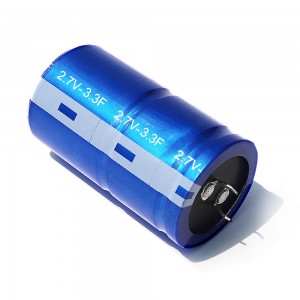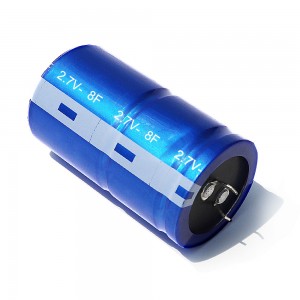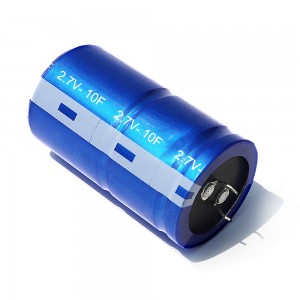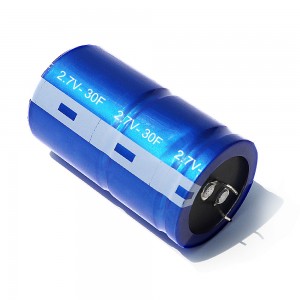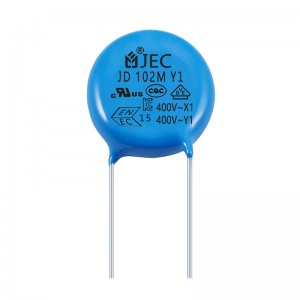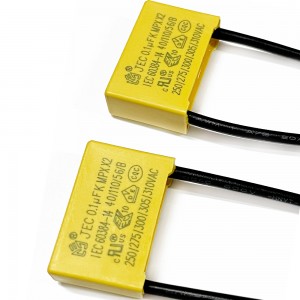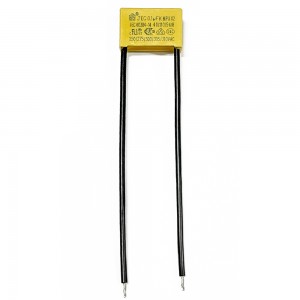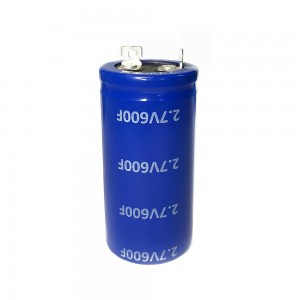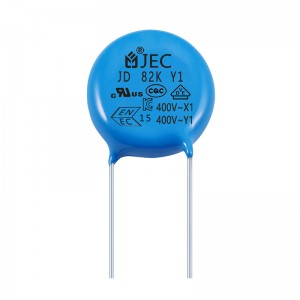Cylindrical Super Capacitor
| Type | Cylindrical Super Capacitor |
| Brand Name | OEM |
| Supplier Type | Original Manufacturer |
| Characteristics | high capacitance, low ESR, good consistency |
| Capacitance | 1-3000 Farad |
| Tolerance | -20%~+80% |
| Rated Voltage | 2.7V |
| Operating Temperature | -20℃~+85℃ |
| Package Type | Through Hole |
| Applications | RAM, Consumer Electronics, Wind Turbines, Smart Grids, Backup Power Supply, etc. |
| Types | Rated voltage | Nominal capacity | Internal resistance | Size(mm) |
| (V) | (F) | (mΩ @1kHz) | ||
| Cylindrical | 2.7 | 1 | ≤400 | 8*13.3 |
| 2.7 | 2 | ≤300 | 8*20.2 | |
| 2.7 | 3 | ≤220 | 8*20.2 | |
| 2.7 | 3.3 | ≤220 | 8*20.2 | |
| 2.7 | 4.7 | ≤200 | 10*20.2 | |
| 2.7 | 6 | ≤120 | 10*20.2 | |
| 2.7 | 6.8 | ≤100 | 12.5*21 | |
| 2.7 | 8 | ≤90 | 12.5*21 | |
| 2.7 | 10 | ≤70 | 10*25.2 | |
| 2.7 | 10 | ≤70 | 10*30.2 | |
| 2.7 | 10 | ≤70 | 12.5*26.1 | |
| 2.7 | 15 | ≤50 | 12.5*30.7 | |
| 2.7 | 15 | ≤50 | 16*26.3 | |
| 2.7 | 30 | ≤30 | 16*32 | |
| 2.7 | 40 | ≤30 | 18*41.3 | |
| 2.7 | 50 | ≤25 | 18*41.3 | |
| 2.7 | 90 | ≤18 | 22*44.4 | |
| 2.7 | 100 | ≤16 | 22*49.5 | |
| 2.7 | 120 | ≤15 | 25*44.6 | |
| 2.7 | 150 | ≤14 | 25*49.5 | |
| 2.7 | 200 | ≤12 | 25*59.6 | |
| 2.7 | 300 | ≤10 | 35*54.6 | |
| 2.7 | 400 | ≤7 | 35*69.9 |
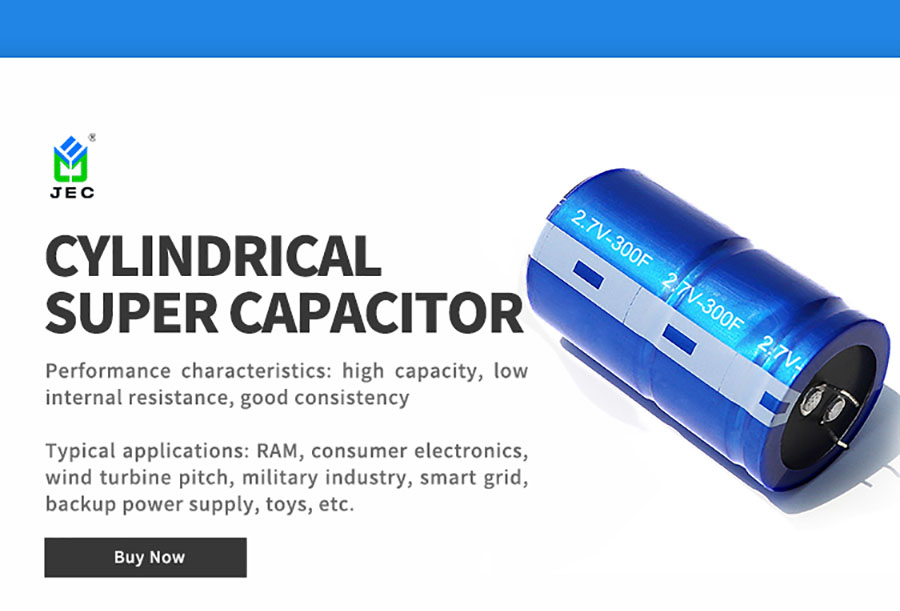
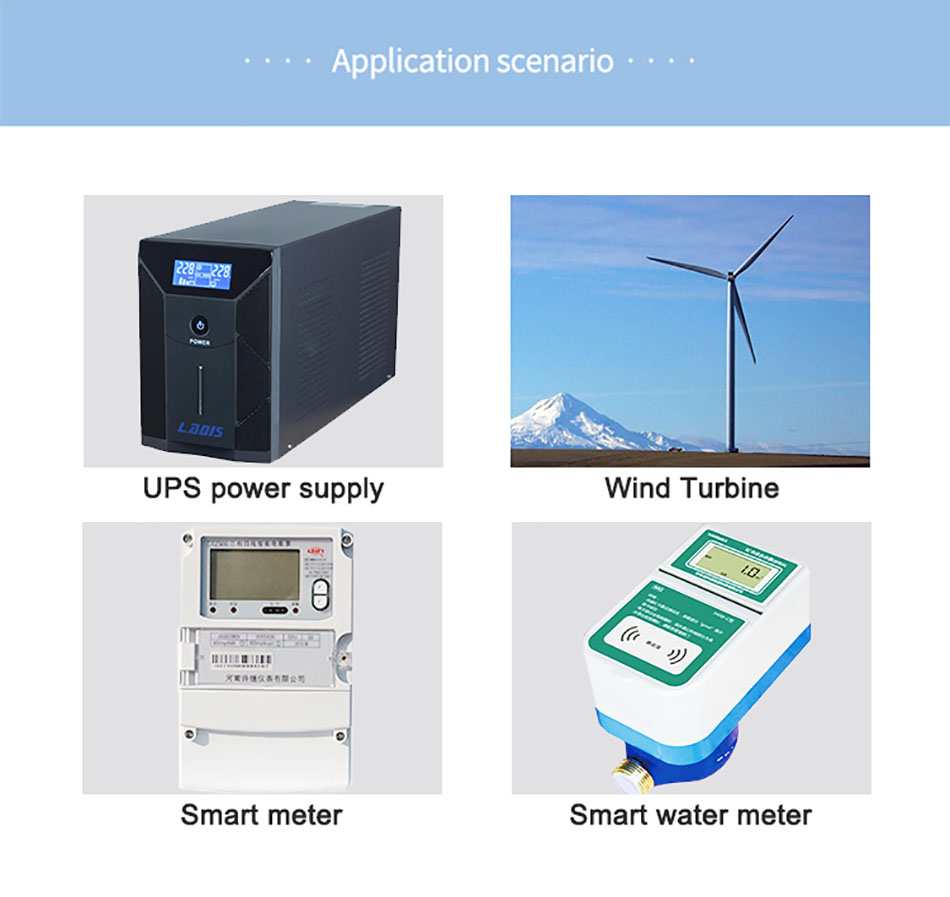
Application
Widely used in consumer electronics, Internet of Things, smart meters, electric toys, UPS, program-controlled switches, car recorders
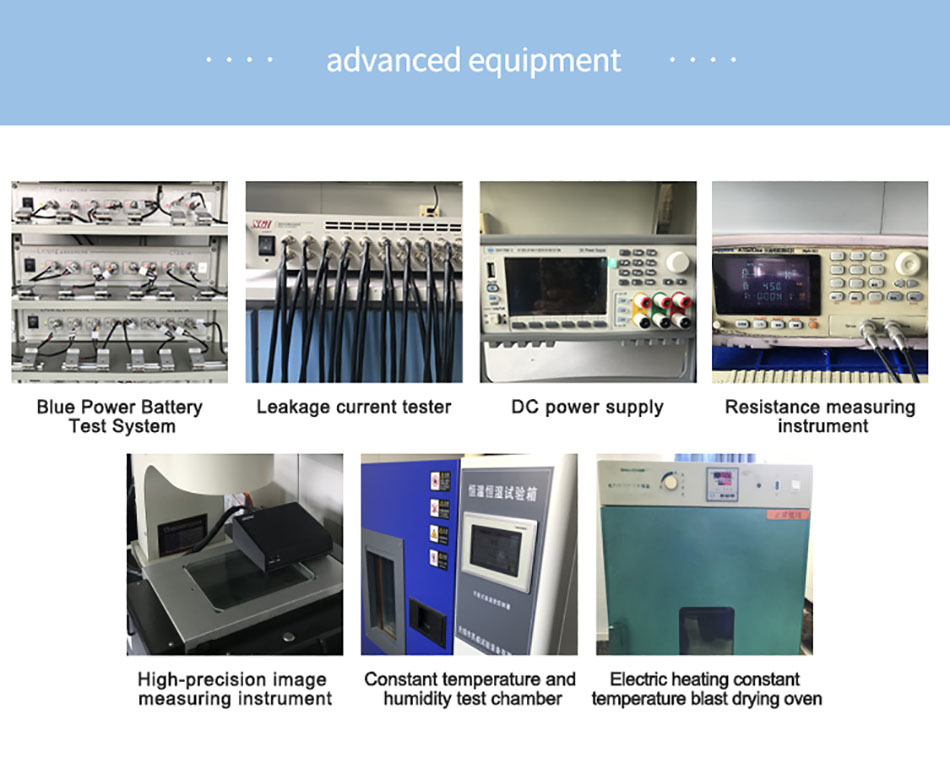
Advanced Production Equipment
Our company adopts advanced production equipment and instruments, and organizes production in strict accordance with the requirements of ISO9001 and TS16949 systems. Our production site adopts "6S" management, ensuring the stability and reliability of products. We produce products of various specifications in accordance with International Electrotechnical Standards (IEC) and Chinese National Standards (GB).
Certifications

Certification
JEC factories have passed ISO9001 and ISO14001 management certification. JEC products strictly implement GB standards and IEC standards. JEC safety capacitors and varistors have passed multiple authoritative certifications including CQC, VDE, CUL, KC , ENEC and CB. JEC electronic components comply with ROHS, REACH\SVHC, halogen and other environmental protection directives, and meet the EU environmental protection requirements.
About Us
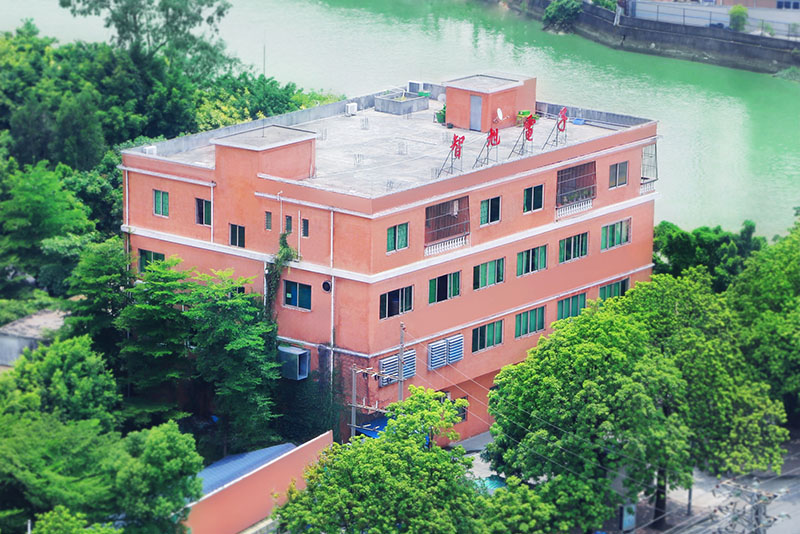
About JYH HSU
Dongguan Zhixu Electronic Co., Ltd. (also JYH HSU(JEC)) was established in 1988. It is a new modern enterprise specializing in the production and sales of film capacitors, X/Y safety capacitors, varistors/thermistors, and medium, high and low voltage ceramic capacitors. It is a new modern enterprise dedicated to R&D, production and sales of electronic components.
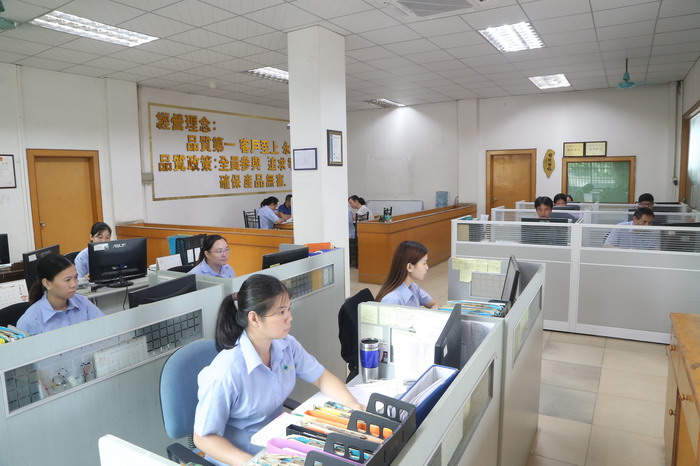
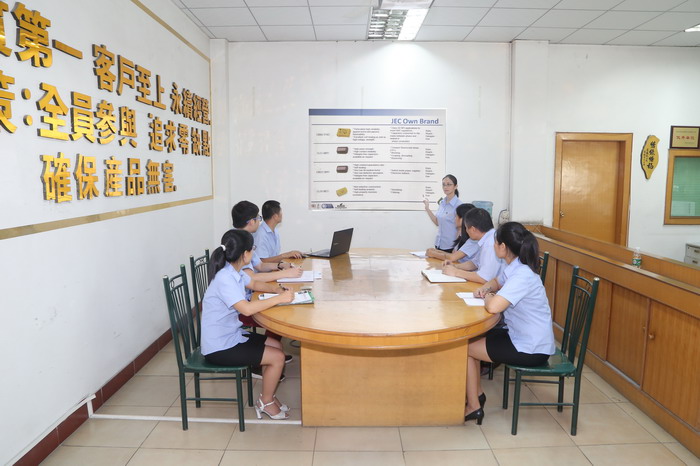
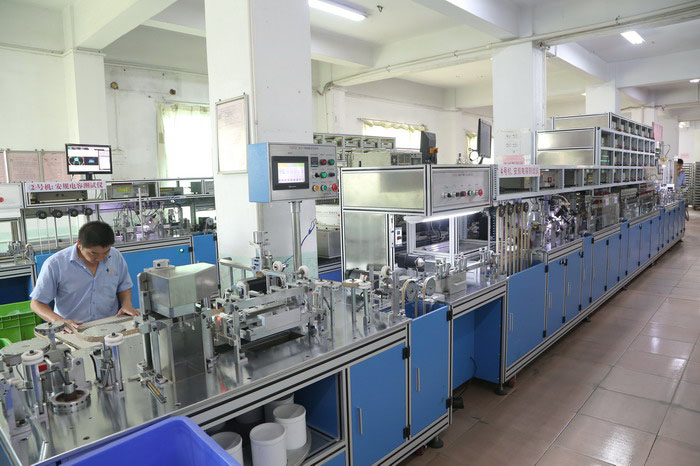
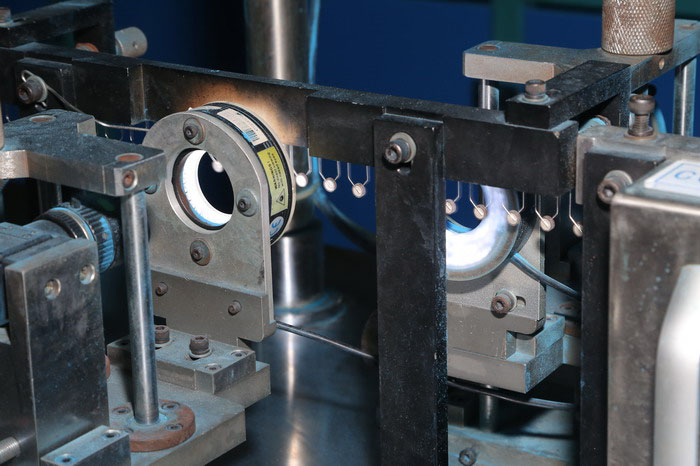
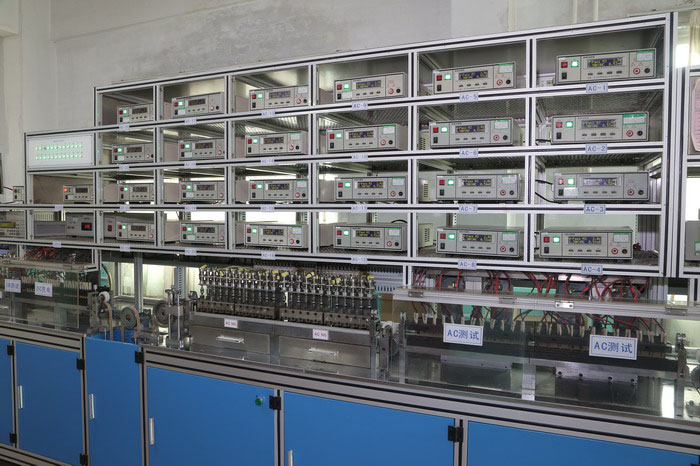
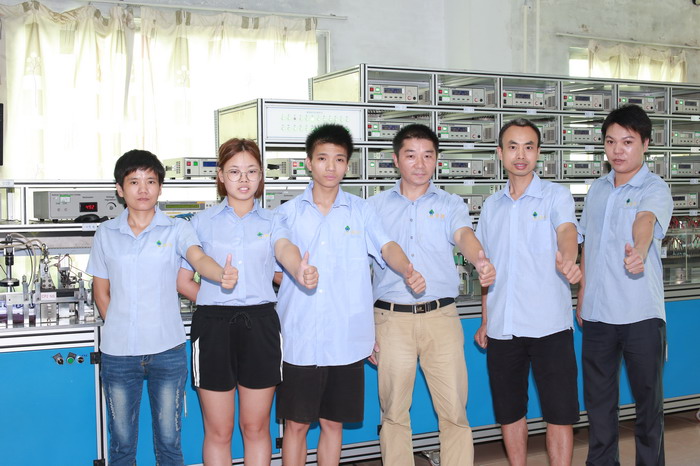
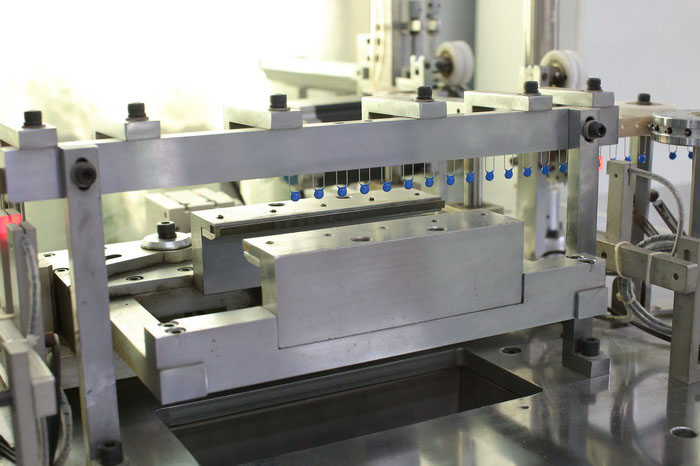
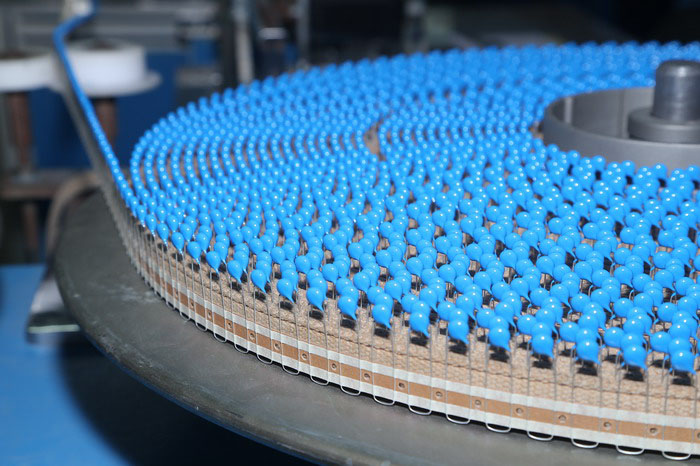
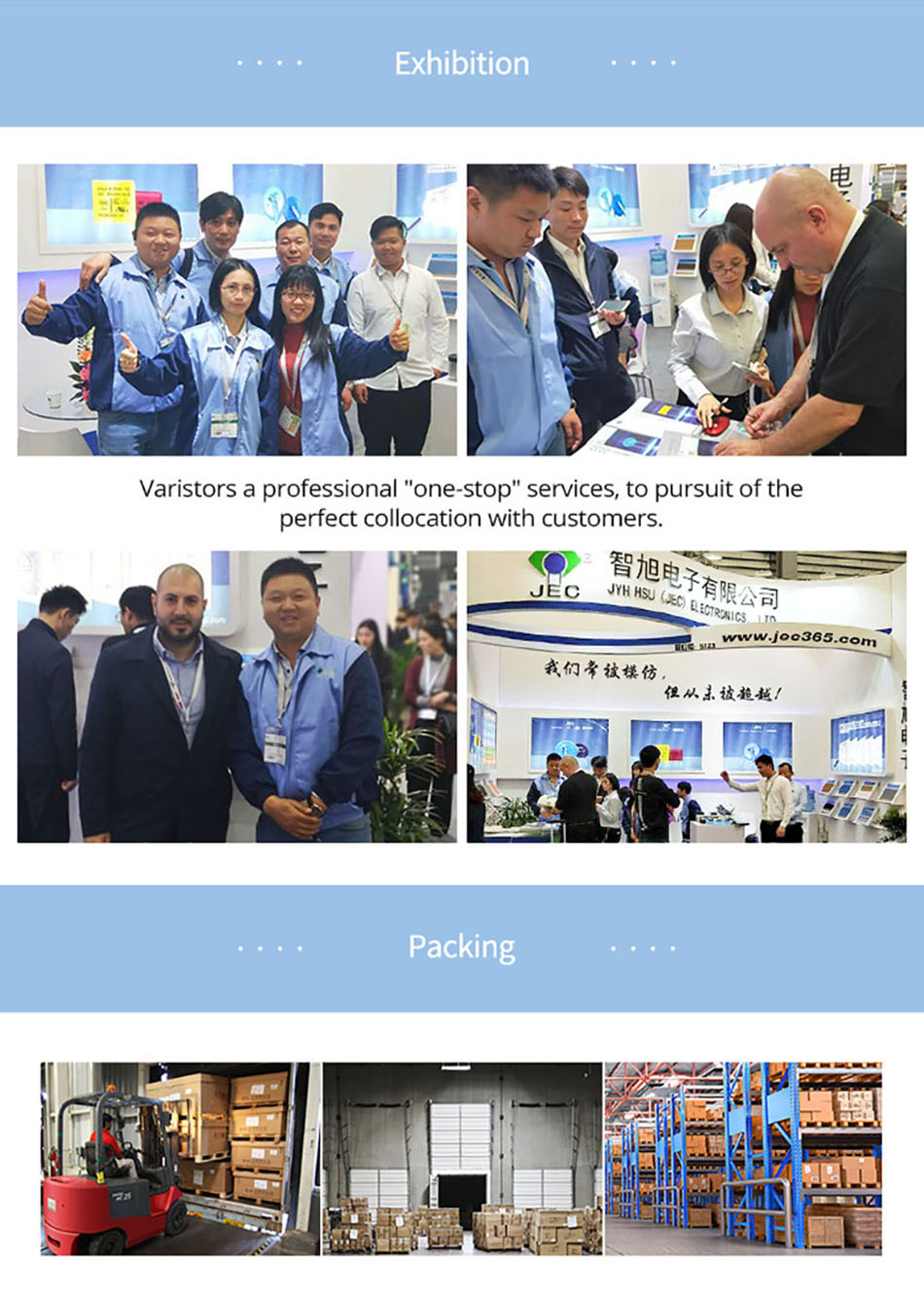
1. What is the difference between a super capacitor and a battery?
The similarities are all about power storage, but the effect is quite different. Supercapacitors are characterized by large discharge power, and the stored electricity can be discharged in a very short time, but it is not continuous; the characteristics of batteries are just the opposite. Battery is a continuous discharge device that can provide power for a long time. Take an electric car as an example. The super capacitor can be used to start a car with its high power. But when the car is driving on the road, it uses a battery, which can continue to provide power.
2. Are super capacitors dangerous?
The voltage of the super capacitor is very low, generally only about 2.3V-3.0V. There is no danger if you hold the two wire pins or apply super capacitors to electrical equipment. Super capacitor itself will not explode, but sometimes it may cause short circuit and sparking in the battery.
3. Are super capacitors polarized?
Yes. Super capacitors have a fixed polarity. You need to confirm the polarity before using them.
4. What is the lifetime of super capacitors?
The life of supercapacitors is affected by specific working conditions. Generally, a new supercapacitor with no faults in performance, in a laboratory environment (about 25℃), can be recharged and discharged hundreds of thousands of cycles. Assuming its cycle life is 500,000 cycles, then you can estimate the life time by dividing the charging and discharging frequency (n cycles/day). The higher the ambient temperature, the greater the charge and discharge current, and the corresponding life will be reduced.
5. What is the super capacitor made of?
Supercapacitors are electric double-layer capacitors. They are the largest (in capacitance) in electric double-layer capacitors. Activated carbon porous electrodes and electrolyte are used to form a double layer structure.
6. What is the operating temperature of the supercapacitor?
The normal working temperature of energy supercapacitors is -25℃ ~ 70℃, and the normal working temperature of power supercapacitors is 40℃ ~ 60℃. Temperature and voltage have an impact on the life of supercapacitors. Generally speaking, every time the ambient temperature of a super capacitor increases by 10C, the life of the super capacitor will be shortened by half.
7. Will the electrolyte in the super capacitor leak? What are the precautions when using and shipping?
Electrolyte leakage: If the supercapacitor is installed at an unreasonable location, it is easier to cause electrolyte leakage and other problems, which will damage the structural performance of the capacitor.
When transporting and handling, please keep the sealing plate upward. Even a brief downward movement may shorten the life span of the supercapacitor.
8. What are the main applications of supercapacitors?
The two main applications of supercapacitors: high-power pulse applications and instantaneous power retention. The characteristics of high-power pulse applications: instantaneous flow of large current to the load; characteristics of instantaneous power retention applications: it requires continuous supply of power to the load, and the duration is generally a few seconds or a few minutes. A typical application of instantaneous power retention: the reset of the disk drive head when the power is off.
9. Why is the internal resistance of supercapacitors important?
A large part of the reason why super capacitors can be widely used is that they have the advantages of high power density and short charging time. This is due to the fact that super capacitors do not undergo chemical reactions during the energy storage process, and only electron migration occurs. So the internal resistance of super capacitors is only affected by the ohmic internal resistance. For this reason, the internal resistance is an important performance parameter of the supercapacitor, and the accuracy of the internal resistance test is an important indicator for evaluating the capacitance.

